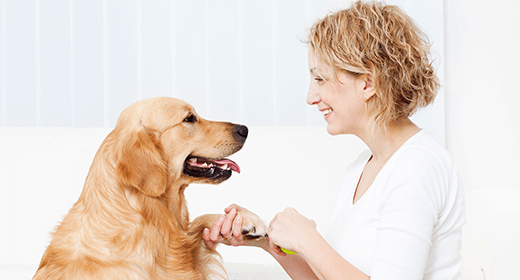

Small-breed dogs tend to have higher metabolism rates than their larger counterparts, which means they need a puppy feeding diet specifically designed for them. 'Small-breed dog food formulas are created to give your dog the right balance of nutrients,' says Debra Eldredge, DVM, a veterinarian in upstate New York and coauthor of The Dog Owner's Home Veterinary Handbook (Howell House). Here's what you need to know to feed your small-breed pooch.
The guidelines on the package are a great starting point, Eldredge says, but 'you have to customize [them] for your dog.' For instance, her family has three dogs who all weigh almost the same. But, one is getting twice as much food as the other two, and she's thin. 'She just burns it up,' Eldredge says. Your dog's breed and activity levels will affect how much food she needs.
Small-breed puppies, especially toy breeds, can be prone to hypoglycemia. To keep your dog’s blood sugar levels up, you might have to feed her more frequently and up the calories, Eldredge says.
Small-breed puppies grow quickly, so during the first six months, they need to eat more food and eat more frequently, generally three to four times a day. After six months, feeding two meals a day is usually sufficient. As your dog gets older and less active, her nutritional needs change, and she may need a formula for mature dogs. Her new food will generally have more protein and fewer calories.
Smaller dogs have smaller mouths and teeth, so their food is usually made in a smaller bite size, which is easier for them to chew and swallow.
Don't leave your dog's food out all day. Instead, pick it up after 10 or 20 minutes, Eldredge says. If food is available all day, she may eat out of boredom.
With dog food, your pet is on a balanced diet. Feeding her human food may throw off that balance. The occasional taste of chicken or eggs is okay, but don't make it a daily habit.


Traditionally, owners of large-breed and mature/senior dogs have known that their dogs may be predisposed to common joint and skeletal conditions—problems that may affect their mobility and overall wellness. The good news is that specially formulated diets and dog care products can help promote skeletal and joint health and assist in maintaining healthy cartilage.
Including specific nutrients in your dog's diet can help maintain healthy joints. Optimal levels of vitamins and minerals are found in IAMS™ dog care products and promote the efficient production of cartilage.
IAMS has formulas that are lower in fat and calories compared with our other adult maintenance formulas. Bones are the framework of the body, and the more weight added to the frame, the more stress joints experience. IAMS formulas such as IAMS™ ProActive Health™ Mature Adult are designed to help keep large-breed or mature dogs at an optimal weight to minimize joint stress.